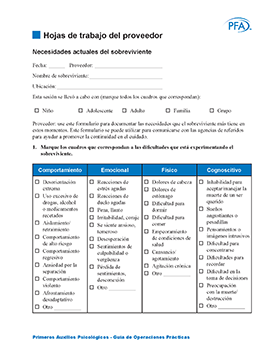
Primeros Auxilios Psicológicos Guía de Operaciones Prácticas 2da edición Apéndice D: Hojas de...
Is the fourth appendix for the Psychological First Aid Field Operations Guide (PFA).
The following resources on child trauma were developed by the NCTSN. To find a specific topic or resource, enter keywords in the search box, or filter by resource type, trauma type, language, or audience.

Is the fourth appendix for the Psychological First Aid Field Operations Guide (PFA).
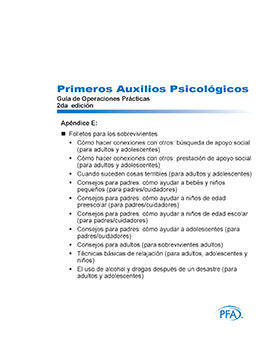
Is the fifth appendix for the Psychological First Aid Field Operations Guide (PFA).
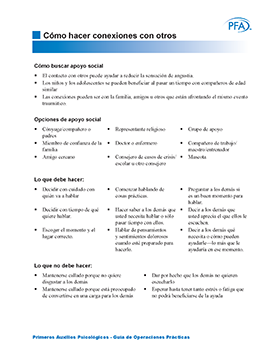
Is a handout from Psychological First Aid Field Operations Guide (PFA). This handout offers information to survivors on seeking social support, social support options, what survivors can do, what survivors should not do, and ways to get connected.
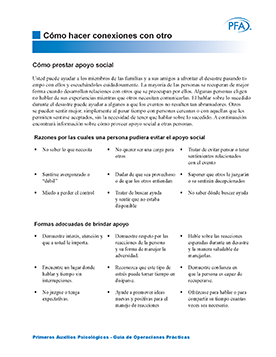
Is a handout from Psychological First Aid Field Operations Guide (PFA).
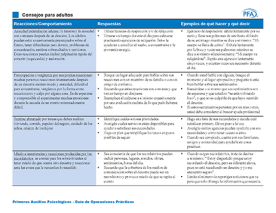
Is a handout from Psychological First Aid Field Operations Guide (PFA). This handout provides people with common reactions after a disaster, ways to respond to those reactions, and examples of things you can say to another adult.
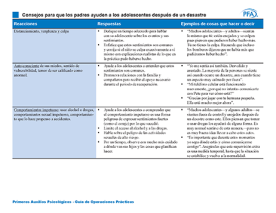
Is a handout from Psychological First Aid Field Operations Guide (PFA). This handout provides parents with common reactions after a disaster, ways to respond to those reactions, and examples of things you can say to your adolescent.
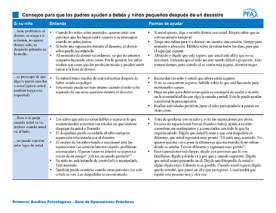
Is a handout from Psychological First Aid Field Operations Guide (PFA).
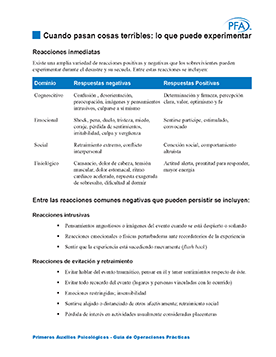
Is a handout from Psychological First Aid Field Operations Guide (PFA). This handout offers information to survivors on immediate reactions that may occur, common negative reactions that may continue, reactions to the death of a loved one, ways to cope, and strategies that don't work.
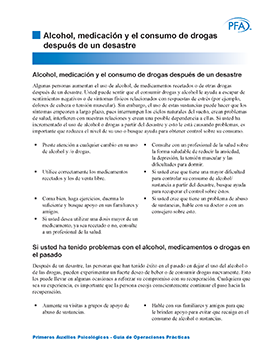
Is a handout from Psychological First Aid Field Operations Guide (PFA). This handout offers information on alcohol, medication, and drug use after a disaster, as well as tips for those who have had an alcohol or drug problem in the past.
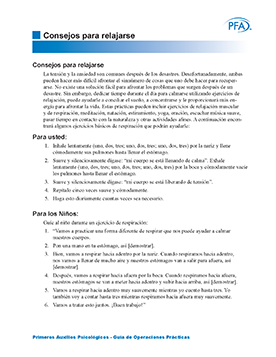
Is a handout from Psychological First Aid Field Operations Guide (PFA). This handout offers brief tips for relaxation for adults, children, and ways to make a game out of it. This is the Spanish version of PFA: Basic Relaxation Techniques.
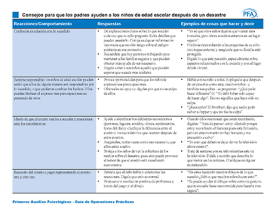
Is a handout from Psychological First Aid Field Operations Guide (PFA).
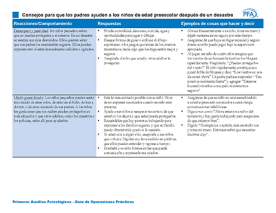
Is a handout from Psychological First Aid Field Operations Guide (PFA). This handout provides parents with common reactions after a disaster, ways to respond to those reactions, and examples of things you can say to your preschool-age child.